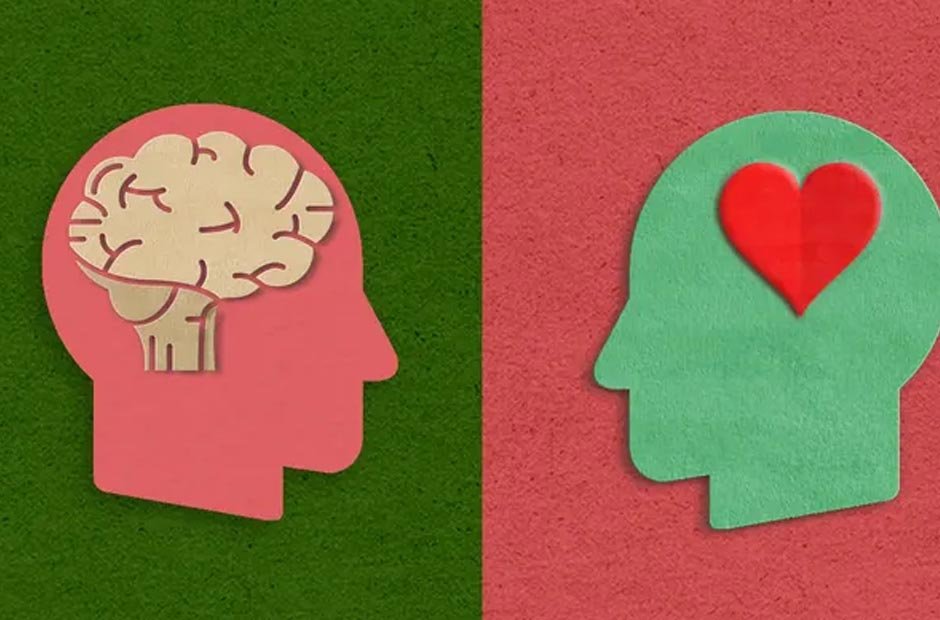The post is developed in partnership with BetterHelp.
The terms “emotions” and “feelings” are often used interchangeably, with many people believing they’re the same thing. While these two words go hand-in-hand, they are not identical. Understanding the difference between emotions and feelings can be critical for developing a healthy sense of self-awareness and managing one’s responses to different stressors and situations in life. Keep reading to learn more about what sets emotions apart from feelings and how knowing this information can be beneficial.
Defining Emotions And Feelings
Emotions are strong, conscious, and short-lived mental reactions that come before feelings. The six basic emotions are sadness, happiness, surprise, anger, fear, and disgust; however, there are many others a person may experience. When a stimulus causes an emotion, the body releases chemicals, creating physical sensations in the body that may be positive or negative. Emotions are raw, immediate, and objective and can’t be changed.
Feelings are much more specific than emotions and refer to our interpretation of or thoughts about our emotions. When describing how we feel, we’re not referring to our emotions, but rather our feelings. Two people can experience the same emotion but have vastly different feelings about it. The way we feel about an event or stressor is based on our subjective interpretation of it and may be influenced by our past experiences, beliefs, and biases. Feelings aren’t always accurate, but they are valid.
The Importance Of Distinguishing Emotions From Feelings
Understanding the difference between emotions and feelings can be crucial for navigating different situations with clarity and self-awareness. Individuals who can’t distinguish their emotions from their feelings may be more prone to reacting to situations instead of thoughtfully responding to them.
Given that emotions are immediate reactions, it’s crucial to pause and think before speaking or acting based on those initial sensations. Being able to think critically about situations before responding can improve our relationships because we’re able to communicate why we feel the way we do. Having a strong sense of control over our feelings can help us feel happier as we aren’t as swayed by the obstacles of life.
Overall, those who understand the difference between their emotions and feelings can cope more effectively when faced with challenges and have a greater ability to choose healthier responses.
Improving Emotional Regulation
With the right tools and support, anyone can work toward improving their emotional regulation skills. Keeping the following tips in mind can help you improve in this area:
Accept how you feel: Instead of fighting your feelings, accept them. Remember that your feelings are valid, even if they aren’t accurate. Pushing your feelings down may only make them stronger and more difficult to work through.
Consider therapy: Different types of therapy can be instrumental in teaching emotional regulation skills, including dialectical behavior therapy, which you can learn more about at www.betterhelp.com/advice/therapy/what-is-dialectical-therapy/. Working with a therapist can help you get to the root of your feelings as well as equip you with the tools needed to self-regulate.
Try mindfulness: Mindfulness involves staying in the present moment and allowing your thoughts to pass without judging or interpreting them. Engaging in mindfulness can help you lessen your reactivity to stressors and grow in self-compassion and control.
Journal: Journaling can allow you to get your thoughts down on paper and out of your head. By writing down your feelings, you may have greater success in interpreting them as well as more time to calm down and think rationally.
Emotional regulation doesn’t happen overnight. However, with consistency, effort, and dedication, it is possible to improve over time.
Final Thoughts
Distinguishing our emotions and feelings can allow us to develop self-awareness and understand ourselves on a deeper level. Remember that emotions happen quickly and aren’t in our control, while our feelings are influenced by our thoughts and interpretations of our emotions. Keeping this in mind can be critical in moments of stress or tension.
While emotional regulation is a skill that many parents instill in their children, it’s not something that everyone learns, and can always be improved upon. We have more control than we might think when it comes to responding to the world around us, and it’s up to us to make choices that will positively impact our relationships, mental health, and overall well-being.
















